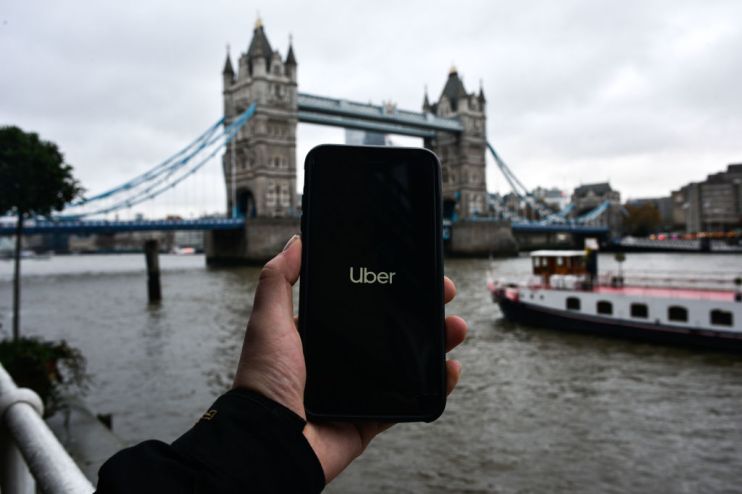Uber reveals UK profit for the first time: £32 million

Uber booked £3.4 billion in revenue from the UK segment of its business last year, it has been revealed.
According to its most recent companies’ house filing, Uber made £2.6 billion in sales revenues from its taxi business, whilst its fast-growing food delivery platform, Uber Eats, brought in £700 million.
The firm’s UK holding company also saw pre-tax profits of £32 million, up from £5 million the year before.
The numbers, first reported by the Sunday Times, provide insight into the performance of Uber’s UK operation for the first time since it restructured its business model in March last year.
That restructuring came as a result of a landmark ruling from the Supreme Court in 2021, which determined that Uber drivers should be legally classed as workers.
The company, it said, was a transport provider, as opposed to a “middle-man” between drivers and customers.
As a result of the changes, Uber now receives all its revenue from taxi fares, as opposed to just a segment.
It also prompted a raft of other shifts to the business, including that 20 per cent VAT would be applied to rides booked via the app – which resulted in a hike in Uber’s fare charges.
Drivers now receive holiday pay and a minimum wage for the time that they’re working on jobs.
Uber’s accounts show the full-year 2022 period, with the changes first coming into place at the end of the first quarter, meaning it is difficult to draw conclusions about the companies’ performance.
In its filings, the ride-hailer noted that its brand and reputation – which had been dented following the highly publicised court case – would be “critical to our business prospects.”
“We have previously received significant media coverage and negative publicity regarding our brand reputation. Whilst we have taken significant steps to rehabilitate [this],” it would depend in part on improved culture and workplace practices, as well as continued “marketing and public relations efforts.”
The firm said “attracting drivers” to its platform was particularly important, warning that numbers could decline as a result of “dissatisfaction with our brand, pricing models, ability to prevent safety incidents,” or the “passage or enforcement of local laws limiting our products.”
The firm also noted the “highly competitive” nature of the mobility industry in London, with its biggest rival currently Bolt.
Bolt has experienced a surge in demand and bookings on its platform over the last year, with City A.M. recently revealing it had reached nine million users on its app and, in London, had moved its driving hub to the city centre to handle demand.
An Uber spokesperson said: “Uber first launched in the UK over ten years ago and in that time has created hundreds of thousands of earnings opportunities.”
“We regularly move over five million Brits around towns and cities, making the UK one of Uber’s most important global markets.”